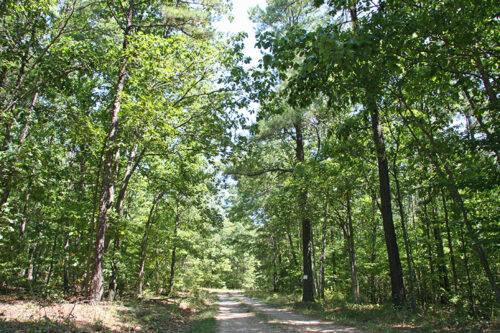 Virginia’s state forests, State parks, wildlife management areas, and natural area preserves are state lands with distinct purposes. These state-owned and managed lands also differ from federally-owned national forests and national parks. It may be helpful to review these differences before visiting one of these areas.
Virginia’s state forests, State parks, wildlife management areas, and natural area preserves are state lands with distinct purposes. These state-owned and managed lands also differ from federally-owned national forests and national parks. It may be helpful to review these differences before visiting one of these areas.
State Forests
- Managed by the Virginia Department of Forestry.
- Managed for multiple resources, including wood products, wildlife, water quality, and passive recreation.
- Some forests allow hunting and fishing. Regulations for these activities are governed by the Department of Wildlife Resources (DWR) and require the proper licenses.
- Often have passive or self-guided recreational opportunities (e.g., hiking, mountain biking, horseback riding).
- Require a State Forest Use Permit for some activities.
- Typically are not staffed daily and do not have offices and restroom facilities.
- Do not have camping facilities or allow camping.
- Do not allow recreational ATV use.
- May have certain areas designated as natural areas.
- Not funded by the Commonwealth’s General Fund.
State Parks
- Managed by the Virginia Department of Conservation and Recreation.
- Focused primarily on preservation and protection of natural systems, with minimal manipulation or management.
- Tell the story of Virginia and the broader American experience through unique features, such as geological formations, rare plants, fascinating animals, diverse forest and aquatic communities, archeological sites, Colonial homes, Civil War battlefields, pioneer homesteads, and more.
- Generally, do not allow hunting and sometimes allow fishing.
- Offer a wide variety of recreational opportunities, both passive and structured.
- Some have meeting facilities, festivals, concerts, and other events.
- Typically staffed daily with an entry area, offices, and restroom facilities.
- Often have rental cabins or lodges, camping facilities, pool or beaches for swimming, and picnic shelters.
- Typically require daily access tickets, annual passes, and/or reservations for facility rentals.
- Are funded by the Commonwealth’s General Fund.
Wildlife Management Areas
- Managed by the Virginia Department of Wildlife Resources.
- Solely intended to preserve and improve wildlife habitat with a particular focus on game animals.
- Provide public space for hunting and fishing activities.
- Receive some funding from the Pittman-Robertson Federal Aid to Wildlife Restoration Act.
- Land acquisition and maintenance fees largely provided by hunters and anglers through license fees and taxes levied on gear.
- Generally, prohibit swimming, mountain biking, ATV use, and organized sports.
- Typically are not staffed daily and have limited offices and restroom facilities.
- Not funded by the Commonwealth’s General Fund.
Natural Area Preserves
- Managed by the Virginia Department of Conservation and Recreation – Division of Natural Heritage.
- Focused on protecting threatened or rare plants, animals, and natural communities.
- Many allow low-impact visitation, such as hiking and birdwatching.
- Generally, do not allow impactful activities such as camping, hunting, fishing, timber harvesting, vegetation harvesting, and motorized trail vehicles.
- Typically are not staffed daily and do not have offices and restroom facilities.
- Some are open to the public only through arrangements made through a land steward.
- Some are state-owned while others are privately held with a DCR-DNH easement on the property.
- May be temporarily closed or access restricted to protect sensitive or rare plant and animal species.
- Receive some General Funds.
National Forests
- Federal lands managed by the USDA Forest Service.
- Sustain the health, diversity, and productivity of the nation’s forests and grasslands to meet the needs of present and future generations.
National Parks
National Parks
- Federal lands managed by the U.S. Department of the Interior National Park Service.
- Preserves the natural and cultural resources and values of the National Park System for the enjoyment, education, and inspiration of this and future generations.
